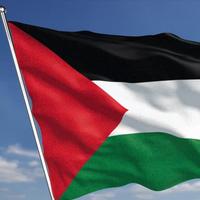Lesson 2 Palestinian Arabic
Lektion 2 Palästinensisches Arabisch
Lesson 2 Palestinian Arabic
Lección 2 Árabe palestino
Lição 2 Árabe Palestino
Lektion 2 palestinska arabiska
Ders 2 Filistin Arapçası
صباح الخير، يا جورج
Good morning|Good morning|"Hey"|George
בוקר|טוב|היי|
Good morning, George
בוקר טוב, ג'ורג'
Bom dia, Jorge
صباح النور، يا فهيم
|||okos
Good morning|morning light|"Hey" or "O"|Fahim
|אור||פahים
Morning light, O Fahim
בוקר אור, פאheem
Bom dia, Fahim
كيف حالك؟
How|your condition
איך|שלך
How are you?
מה שלומך?
Como vai você?
الله يسلّمك، كيف أنت؟
|köszönöm szépen||
God|keep you safe|"how are"|you are doing
אללה|ישמור עליך|איך|אתה
God bless you, how are you?
אללה ישמור אותך, איך אתה?
Deus te abençoe, como você está?
مبسوط، الحمدلله
Happy, thank God.|Thank God
שמח|אללה תודה
Mbesout, praise God
מרוצה, תודה לאל
Feliz, graças a Deus
وكيف شغلك؟
|munkád
How's|your work
ואיך|עבודה
How is your job?
איך העבודה שלך?
Como é o seu trabalho?
يعني ... اليوم الشغل هيك.
It means|"today's"|work|like this
זאת אומרת|היום|עבודה|ככה
I mean ... Today the job is heck.
זאת אומרת ... היום העבודה ככה.
Quer dizer... o trabalho de hoje é assim.
فيه شغل يعني، بس ما فيش مصاري.
||||||pénz
"There is"|work|"I mean"|but no money|no|isn't there|money
יש בו|עבודה|זאת אומרת|רק|לא|אין|כסף
It is a job, but what Fish Masari.
יש עבודה כלומר, אבל אין כסף.
Há trabalho, mas não há dinheiro.
مزبوط، هيك الدنيا اليوم
מזبوط|ככה|העולם|היום
"Exactly"|like this|the world|these days
helyes|||
Pinch, the minimum heck today
נכון, ככה העולם היום
É verdade, é assim que o mundo é hoje
وكيف عندك؟
how|"with you"
ואיך|אִצְלְךָ
And how do you have?
איך אתה?
Como vai você?
أنا عندي شغل وشغل منيح.
|||munka|jó
|I have|work|work|good
אני|יש לי|עבודה|עבודה|טוב
I have filled and filled with joy.
יש לי עבודה ועבודה טובה.
Eu tenho um emprego e um bom emprego.
عندك بيت كمان وكل إشي، هادا منيح.
||||dolog||
|||and everything|everything|this|good
יש לך|בית|גם|וכל|דבר|זה|טוב
You have a violin house and everything. This is good.
יש לך בית גם וכל דבר, זה טוב.
Você também tem casa e tudo mais, tudo bem.
وكيف جارك أبو يوسف؟
|szomszédod|Apa|
|your neighbor|father of|Abu Yusuf
ואיך|שכנה|אבא|יוסף
And how did Abu Yousef join you?
ואיך השכן שלך, אבו יוסף?
Como está seu vizinho Abu Yusuf?
جاري؟ هو كمان عنده شغل ومصاري
|||||pénz
My neighbor|he||"has"|work|money
שכן|הוא|גם|יש לו|עבודה|וכסף
my neighbour? He also has a job and money
השכן שלי? גם לו יש עבודה וכסף.
meu vizinho? Ele também tem emprego e dinheiro
بس أنا ما عنديش وعندي أولاد - ولد وبنت.
|||nincs nekem||||
|||I don't have|"and I have"|children|boy|and a girl
רק|אני|לא|יש לי|ויש לי|ילדים|ילד|ובת
But I do not have and I have children - a boy and a girl.
אבל לי אין, ויש לי ילדים - ילד ובת.
Mas não tenho filhos - um menino e uma menina.
وين البنت؟
where is|the girl
איפה|הילדה
Where is the girl?
Onde está a garota?
بنتي؟ هي في البيت هلقيت (هلق).
||||mostanában|
My daughter|she||the house|right now|right now
הבת שלי|היא|בְּ|הבית|עכשיו|
My daughter? She is at home Halaqat (helq).
הבת שלי? היא בבית עכשיו.
A minha rapariga? Ela está em casa agora.
ووين الولد؟
איפה|הילד
Where is|the boy
hol|
Where's the boy?
ואיפה הילד?
Onde está o garoto?
الولد كمان في البيت.
the boy|||
הילד|גם|בְּ|הבית
The boy is also at home.
הילד גם בבית.
O menino também está em casa.

